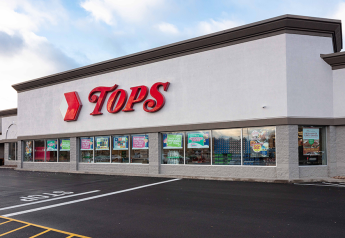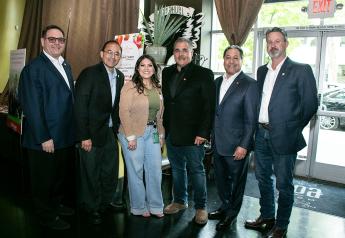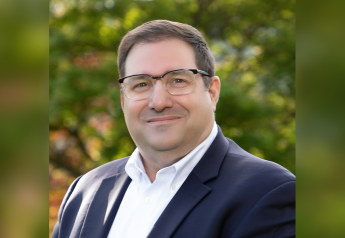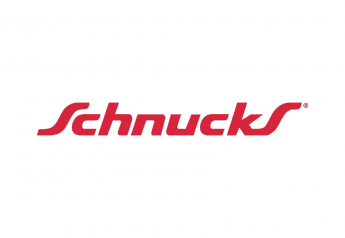Sustainability a part of good practices, Red River Valley growers say

Growers in the Red River Valley say customers typically don’t inquire much about their sustainability practices, but that may well be because buyers know growers have to be sustainable if they want to stay in business.
Dave Moquist, an owner of O.C. Schulz & Sons Inc., Crystal, N.D., said he’s only received one questionnaire from a customer asking about the grower’s sustainability practices.
“Farming in general has been sustainable through the centuries,” Moquist said. “Farmers aren’t going to put more into the ground than what makes sense to be able to grow a good crop.”
Dryland growing versus irrigation is a major way Red River Valley growers practice sustainability, he said. “We’re not drawing down aquifers or pumping water out of the ground.”
Growers in the valley “are dependent on nature” and don’t rely on irrigation to provide the water they need, he said.
Customers of Ben Holmes Potato Inc., Becker, Minn., seem to inquire more about quality and price of their potatoes than sustainability, said owner Kevin Olson.
Nonetheless, all growers have good farming practices, Olson said.
“They tend to care for the land the best they can,” he said, adding that crop rotation plays a big role in sustainability.
“With potatoes, the [fewer] times you can put spuds in the ground the better,” Olson said. “Sustainability means you can’t put the same potatoes in the same ground year in, year out.”
Although customers of Nokota Packers Inc., Buxton, N.D., tend to focus on quality and price, there’s still a push for sustainability, says Mike Rerick, vice president of sales.
“We are doing our part,” he said. “We want to be good stewards of the land.”
For one thing, the company is beginning to focus more on paper packaging and less on poly bags. Implementing practices like this can be more costly, especially during these inflationary times, he said. “But it’s a price you pay for trying to be more sustainable.”
Buyers of Red River Valley potatoes are aware that growers in the region practice sustainability, said Donavon Johnson, president of Northland Potato Growers Association, East Grand Forks, Minn.
“Sustainability is something that all the growers communicate,” he said.
Many potato farms are run by fourth- or fifth-generation growers, Johnson said. And that longevity in itself requires sustainability.
“A lot of people recognize that,” he said. “They know the growers, and they know where the potatoes are coming from.”
Jackson Hall, partner at Halls G4 LLP, Edinburg, N.D., said even though his customers don’t inquire much about sustainability, it plays a big role in his operation.
“We don’t want to spray a chemical or put a fertilizer on just to do it,” Hall said. “We’re trying to make smart decisions financially and environmentally.”
Like Olson, he said rotating crops to give the land a break from potatoes is important to sustainability and retaining soil nutrients.
“We need the land going forward, so we take as good care of it as we can,” Hall said.
When anyone asks Casey Folson, sales manager for Folson Farms Corp., East Grand Forks, about the company’s take on sustainability, he knows what to tell them.
“I like to tell people the Red River Valley is the most sustainable potato-growing region in North America,” he said, adding that “We dryland our potatoes.
“We’re effective at using subsoil moisture, so we’re not using excessive amounts of water and leaching out fertilizer,” Folson continued. “We are dependent on rainfall and subsoil moisture as much as we can be.”
Moquist of O.C. Schulz & Sons said dryland growing not only conserves water, but it cuts costs associated with irrigation, like water pumps and other equipment.
Using quality seed is another good farming practice that aids sustainability, said Olson of Ben Holmes Potato, adding that sustainability is nothing new for farmers.
“Farmers have always had sustainable practices,” he said. “They’ve just never been asked to put them on paper and give an explanation of them before.”
Folson said dryland potatoes are tastier than potatoes grown with irrigation.
“If you compare dryland potato farming side by side to irrigation farming, there’s just no comparison as far as sustainability goes,” he said.
“If buyers are looking for the most sustainable place to source their potatoes, they should look nowhere other than the Red River Valley,” he said.







